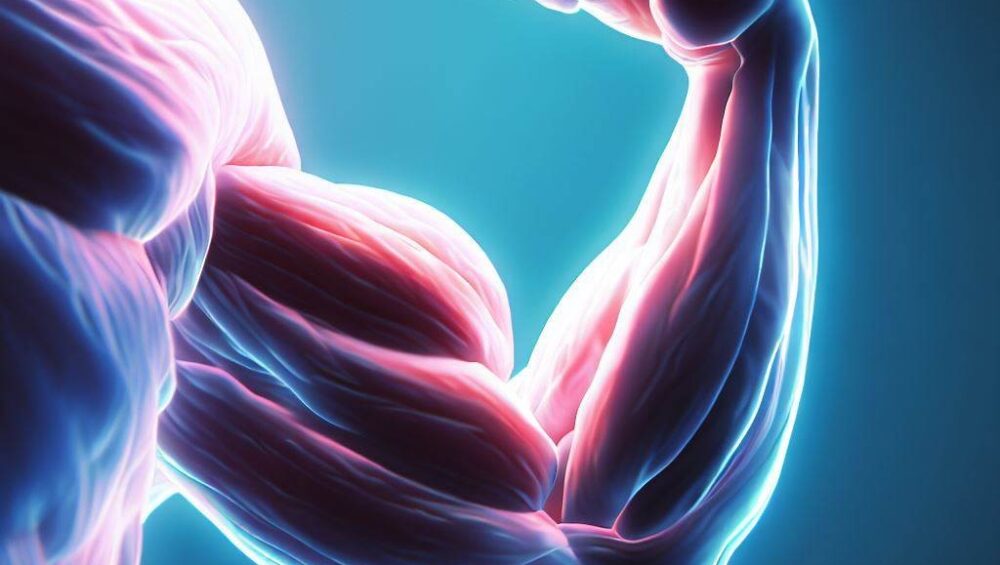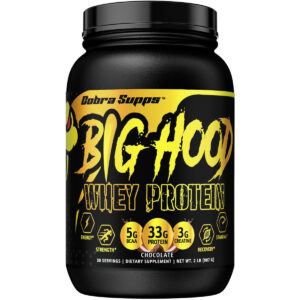In the realm of fitness and wellness, creatine has long been hailed as a powerhouse supplement. While its association with muscle growth and athletic performance is well-documented, recent research has also shed light on its lesser-known yet crucial role in promoting mental health. In this blog post, we will explore the fascinating benefits of creatine supplementation in both muscle development and mental well-being, uncovering how this humble compound can be a game-changer for those seeking a holistic approach to health.
Part I: Building Muscles with Creatine
Understanding Creatine
Creatine is a naturally occurring compound found in small amounts in various animal products, such as meat and fish, as well as in the human body. It plays a vital role in the production of adenosine triphosphate (ATP), the primary energy currency of our cells. During high-intensity activities like weightlifting or sprinting, ATP is rapidly consumed, leading to fatigue. Creatine supplementation enhances the body’s ATP regeneration, allowing for improved exercise performance and muscle gains.
Muscle Growth and Strength
The most well-known and researched benefit of creatine supplementation is its ability to enhance muscle growth and strength. When used in conjunction with resistance training, creatine has been shown to increase muscle mass, improve exercise performance, and boost strength gains. By promoting water retention in muscle cells, creatine provides a more favorable environment for protein synthesis and recovery, leading to accelerated muscle growth.
Exercise Endurance and Recovery
Beyond its role in muscle development, creatine has demonstrated benefits in improving exercise endurance and reducing fatigue. By bolstering the ATP reserves, individuals using creatine experience increased endurance during high-intensity workouts. Moreover, creatine has been linked to faster recovery between exercise sessions, minimizing the risk of overtraining and supporting consistent training efforts.
Part II: Nurturing Mental Health with Creatine
Brain Energy and Cognition
While creatine’s impact on physical performance is well-known, its influence on mental health has gained attention in recent years. The brain is an energy-demanding organ, requiring significant ATP to function optimally. Creatine’s ATP-boosting properties extend to the brain, where it can enhance cognitive function, memory, and mental clarity.
Neuroprotective Effects
Emerging research suggests that creatine has neuroprotective effects, shielding brain cells from damage caused by oxidative stress and inflammation. This makes creatine a potential therapeutic tool in the prevention and management of neurodegenerative diseases like Alzheimer’s and Parkinson’s.
Mood and Depression
Preliminary studies have indicated that creatine supplementation may positively impact mood and help alleviate symptoms of depression. By modulating neurotransmitter levels and supporting brain energy metabolism, creatine shows promise as an adjunctive treatment for individuals struggling with mood disorders.
Conclusion
Creatine supplementation is a versatile and scientifically-backed approach to improving both physical performance and mental well-being. Its role in enhancing muscle growth, strength, and exercise performance is well-established, making it a staple supplement for athletes and fitness enthusiasts alike. However, the emerging evidence supporting its impact on brain health and mood regulation makes creatine an even more compelling addition to a holistic health regimen.
As with any supplement, it is essential to consult with a healthcare professional before incorporating creatine into your routine, especially if you have pre-existing medical conditions or are taking other medications. When used responsibly and as part of a comprehensive wellness plan, creatine can be a valuable ally in achieving peak physical and mental performance, helping you reach new heights of health and vitality.






